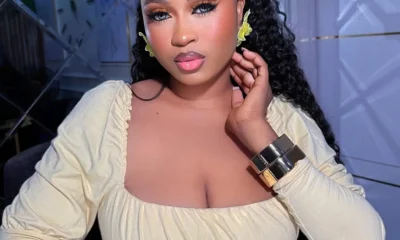Tunde Kelani’s returns with ‘Cordelia’, a gripping Nigerian film exploring political unrest, secrets, and conscience, featuring a stellar cast and powerful drama
‘Cordelia’ tells the story of a weary university professor who shelters a wounded female student amidst campus unrest.
Now, he returns with ‘Cordelia’, a compelling and politically charged drama that signals his bold re-entry into the world of cinema.
It has been three long years since revered Nigerian filmmaker Tunde Kelani last took the director’s chair.
But she’s not just another victim—she’s the daughter of a man involved in a failed military coup.
As tensions escalate, buried secrets begin to emerge, and the professor must decide where he stands in a society on the brink.
Set against a backdrop of political uncertainty, betrayal, and the complex moral questions that come with survival, Cordelia is a slow-burning thriller that blends personal drama with national stakes.
The film’s power lies not only in its plot but in the depth of its characters and the silence between their words.
Written by the esteemed playwright Professor Femi Osofisan and directed by Tunde Kelani, Cordelia draws on the strength of two Nigerian cultural titans.
It is a collaboration that elevates the film’s narrative beyond the surface of events, inviting viewers to reflect on choices, consequences, and conscience.
The film’s cast is just as noteworthy. Yvonne Jegede delivers a raw and vulnerable performance, supported by the ever-graceful Omowunmi Dada, and William Benson, who gives the lead role a quiet but forceful presence.
Femi Adebayo and Bassey Keppy Ekpeyong round out the ensemble with emotionally resonant roles that keep the audience fully engaged.
Cordelia is the kind of story that lingers — a haunting mix of conscience, culture and conflict only Kelani could deliver.
With Cordelia, Tunde Kelani once again demonstrates why he remains one of the most respected voices in Nigerian cinema.
The film is rich in cultural subtext, yet universally relatable. It’s about power, silence, moral struggle—and how personal decisions echo through political landscapes.
More than just a comeback, Cordelia feels like a continuation of the questions Kelani has always asked through his films.
How do individuals survive under broken systems? What happens when doing the right thing threatens one’s safety? What truths must be spoken, even when they endanger us?
“Cordelia is the kind of story that lingers — a haunting mix of conscience, culture and conflict only Kelani could deliver,” a critic said following an early screening.
The visual style of the film retains Kelani’s signature eye for detail.
From dimly lit dorm rooms to university corridors steeped in tension, the cinematography builds an atmosphere of suspense without ever resorting to gimmickry.
Everything feels earned, deliberate, and weighted.
This is not just another Nollywood release—it is a film of importance. It pushes the viewer to think, reflect, and question.
While Cordelia may not follow the fast-paced trends currently dominating African streaming charts, it offers something richer: an urgent story told with depth and patience.
For those craving a film that speaks directly to the complexities of Nigerian society, Cordelia is exactly that.
And for fans of Tunde Kelani, the film is a welcome reminder of why his voice is needed now more than ever.
Like this:
Like Loading...
Related


 Celebrity news3 weeks ago
Celebrity news3 weeks ago
 Celebrity news2 weeks ago
Celebrity news2 weeks ago
 Celebrity news2 weeks ago
Celebrity news2 weeks ago
 Fashion4 weeks ago
Fashion4 weeks ago
 celebrities4 weeks ago
celebrities4 weeks ago
 Celebrity news4 weeks ago
Celebrity news4 weeks ago
 Entertainment4 weeks ago
Entertainment4 weeks ago
 celebrities4 weeks ago
celebrities4 weeks ago





















